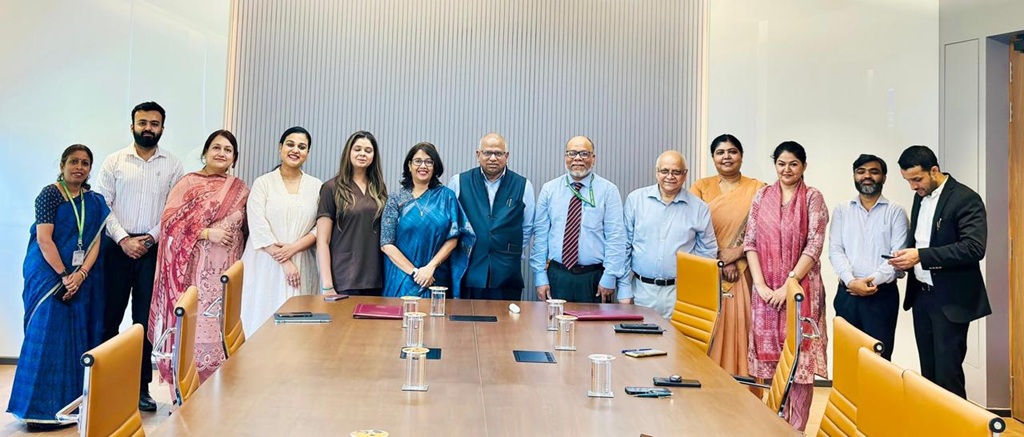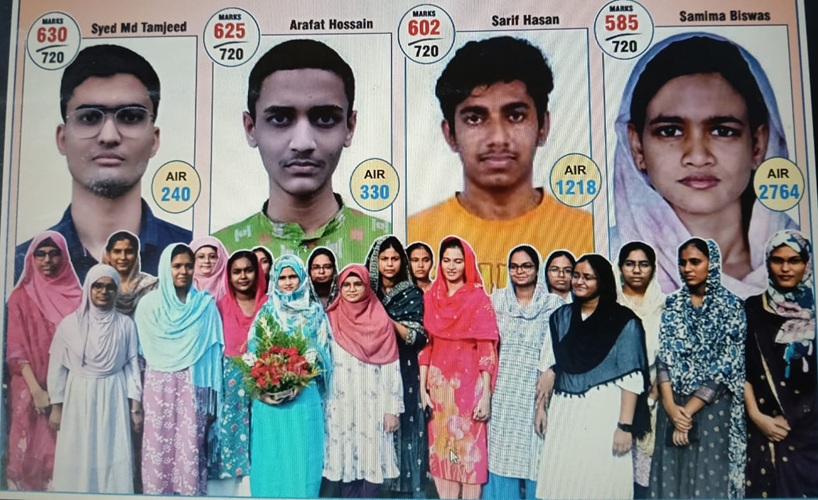Slams BJP government for ‘humiliating, infantilizing’ Muslim women
WASHINGTON, DC – Panelists at a Congressional Briefing criticised the interim order of the Karnataka High Court banning the hijab in schools, forcing young Muslim women to risk harassment or even expulsion if they continue to wear the hijab as per their constitutional right as Indian citizens.
“What is happening right now in India in front of the entire world is mass sexual harassment,” said Indian American activist Sumaiya Zama, a former official with the Council on American-Islamic Relations (CAIR). The High Court order banning hijab was “humiliating, infantilizing and patronising.
“Indian Muslim women are being told what they can and cannot wear by men and by institutions. The consent of thousands of women is being violated as they are told to strip pieces of clothing that they do not wish to remove.”
Zama, who wore hijab at the briefing, said women “should get to choose what we wear or don’t wear… Our silence on efforts to ban the hijab in India means the approval of the violation of Indian Muslim women’s bodily autonomy.” There was “nothing progressive” about restricting women and girls from access to education, forcing women and girls to remove their clothing against their will, and “hounding and harassing women and girls on the street as they try to attend to their colleges and schools.”
The Karnataka High Court’s ruling and the decision of the Karnataka government to implement what has now become a state-wide ban was “obviously a part of the larger goal of the Islamophobic, autocratic Modi regime,” said Amina Kausar, an Indian American IT professional.
The Karnataka government led by the Bharatiya Janata Party (BJP) had “already adopted a series of laws and policies that systemically discriminate against Muslims and other vulnerable communities in the country such as the Citizenship Law, revoking constitutional autonomy in Muslim majority state Jammu and Kashmir, beef ban, laws against cow slaughter, love jihad law, and many others. These laws are accompanied by street violence by vigilante mobs that lynch working class Muslims at will,” Kausar, who also wore hijab at the briefing, said.
“I am often told that it is our conditioning, our indoctrination into an oppressive system that makes us choose a hijab, or a burkha. That if we were not forced to do it by our communities or our families, we would have made different choices. That we are under the influence. That it simply cannot be a woman’s independent choice… This kind of gaslighting is as baffling as it is infuriating.”
Co-organised by a coalition of international human rights organisations, experts and activists from both India and the US addressed India’s raging debate over whether or not the hijab should be allowed in schools, which has led to the public harassment and humiliation of Muslim students and teachers who have been turned away from school gates and forced to strip off their hijabs in public.
Aamna Kausar, the district organiser of the Girls Islamic Organisation in Karnataka, explained how one college’s decision to ban the hijab in classrooms led to other school administrators implementing the ban, even in colleges where the hijab was previously accepted on campus.
“[The girls] used to choose those colleges only because the hijabs were allowed. And it has a history of around 100 plus years where girls are wearing hijab in those colleges. And because of the entry of these saffron shawls in the campuses, the principal [said], ‘If I don’t have to allow saffron shawls, then hijab should also be removed,’” said Kausar.
“This case can easily be solved if the principals give some leniency and instead of waiting for the High Court order. I think it can easily be solved. But the principals who are [from the] extremist majority, they directly show that anger towards [the students].”
Adding that these students’ careers and futures have been put in jeopardy over the hijab ban, Kausar said, “The girls here in India who have left their colleges [are] actually very scared and they are having very bad mental health…. They are very scared thinking how they will approach exams.”
Aamna Kausar also dispelled the myth that saffron scarves, worn by Hindu students to show their loyalty to the Hindu extremist movement, hold the same religious weight as the hijab.
“Saffron scarves… [are] something that has been coming in the society just to oppose the hijab,” Kausar said. “No matter where the place is… wherever we go, we wear hijab. But saffron shawls, we never saw them wearing it except for their religious places. So this point needs to be more clear. They take saffron shawls as something… equal to hijab, which is not true.”
Zama pointed out the hypocrisy of forcing Muslim women to remove their hijabs in the name of uniformity and secularism while the central government of India promotes Hindu supremacism through its discriminatory anti-minority policies.
“The privatisation of religious and cultural practices is not secularism in India,” she said. “It is a selective secularism that positions religious minorities as having to be religiously neutral while the current government advances and makes public its own agenda around the creation of a fascist Hindutva nation state.”
“The support from international level will surely help a lot to change the [hijab ban],” said Kausar, appealing to the international community to support Indian Muslim women. “I think we can all stand for these girls… I think people out there can help these hijabis and they can stand for them.”
The briefing was co-hosted by Amnesty International USA, Genocide Watch, 21Wilberforce, Hindus for Human Rights, Indian American Muslim Council, International Christian Concern, Jubilee Campaign, Dalit Solidarity Forum, New York State Council of Churches, Federation of Indian American Christian Organizations of North America, India Civil Watch International, Students Against Hindutva Ideology, Center for Pluralism, American Muslim Institution, International Society for Peace and Justice, Association of Indian Muslims of America, the Humanism Project (Australia)۔






0 Comments